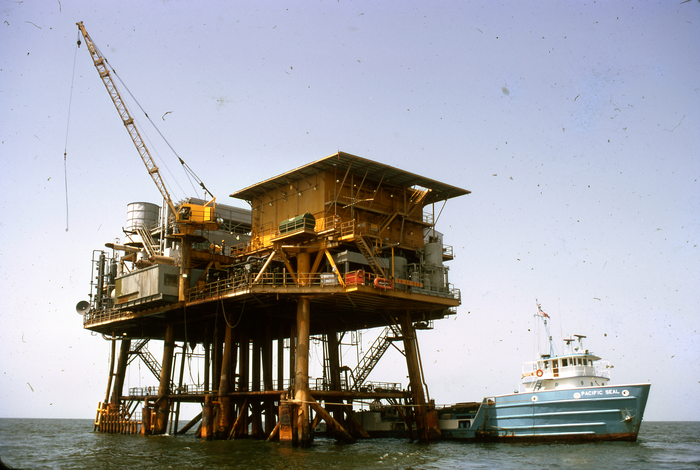Wetlands, coastal areas and offshore waters near Alabama, Louisiana and Texas have more inactive oil and gas wells than producing ones, and the cost to permanently plug and abandon them could be $30 billion, University of California, Davis, researchers suggest.

Credit: Lynda Miller, Offshore Oil and Gas History Project
Wetlands, coastal areas and offshore waters near Alabama, Louisiana and Texas have more inactive oil and gas wells than producing ones, and the cost to permanently plug and abandon them could be $30 billion, University of California, Davis, researchers suggest.
A paper published today in the journal Nature Energy examines the cost to plug 14,000 wells that are inactive, have not produced for five years and are unlikely to be reactivated in the Gulf of Mexico region, which is the epicenter of U.S. offshore oil and gas operations.
The wells could pose future environmental and financial risks to the public, and the cost differential for plugging onshore wells versus those in offshore waters is large, said Mark Agerton, an assistant professor at UC Davis and lead author of the paper.
Leaks from wells closer to shore are more likely to damage coastal ecosystems and release greenhouse gases like methane into the atmosphere, compared to wells in deep waters. The study found that more than 90% of inactive wells are in shallow areas, and the cost to plug those would be $7.6 billion, or 25% of a total $30 billion.
Informing policy decisions
“The wells aren’t supposed to be leaking into the environment, but sometimes they do,” said Agerton, of the Department of Agricultural and Resource Economics. “How do you get the most environmental benefit for the least amount of money?”
The findings could help states decide cleanup priorities, especially as they access $4.7 billion in federal money authorized by the Infrastructure Investment and Jobs Act. That money is set aside for methane reduction programs, including cleanup of old oil and gas wells, said Gregory Upton, an associate research professor at the Louisiana State University Center for Energy Studies and co-author of the paper.
“States have a pretty good idea of what it costs to plug these wells on land, but there is really a lot of uncertainty as to what the costs were for these offshore wells,” Upton said during a media briefing about the paper.
Liability for cleaning up wells abandoned in federal waters falls to prior owners if the current owner becomes insolvent and is unable to cover costs. Large American oil companies currently own or have owned 88% of the wells in federal Gulf of Mexico waters and would legally shoulder cleanup liabilities before taxpayers, Agerton said.
But in state waters, each jurisdiction handles liability differently, and prior ownership doesn’t come into play. States oversee plugging programs for orphaned wells whose owners have gone bankrupt, though the cost to plug an abandoned offshore well increases with the length of the well and the depth of the water.
“The bulk of the costs comes from plugging wells in deeper water where the environmental consequences are less than for a shallow well closer to shore,” Agerton said. “That money is probably better spent on state waters where they can’t go after prior owners for cleanup costs and it’s going to be a cheaper cleanup job with more environmental benefit.”
Siddhartha Narra, Brian Snyder and Gregory B. Upton Jr. of Louisiana State University, are co-authors on the research.
Journal
Nature
Method of Research
Meta-analysis
Subject of Research
Not applicable
Article Title
Financial liabilities and environmental implications of unplugged wells for the Gulf of Mexico and coastal waters
Article Publication Date
8-May-2023




